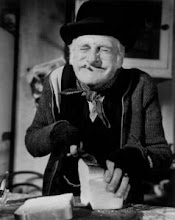Tuesday 20 March 2007
Language Change Snippet : Nice try, Ronald!
Terminology check: neologism
Seduced by an accent...
Thursday 1 March 2007
What's in a name?
Oisín Rhys Kelly as branded by his parents on 1/03/2007
[with apologies to Dave and exponents of the alphabetical principle]
Oisín is now one week old and I have spent much of the past seven days explaining the pronunciation of his name to those unfamiliar with Irish spelling and phonetics. Which is mostly everyone, including some Irish people themselves. (It is "Osh-een" by the way). A part of me is mindful of the possibility that I have condemned him to a life of wearisome explanation- "It's Irish. That's why the spelling makes no sense." Indeed he may well curse the day his parents trotted off to the register office congratulating themselves on their rather exotic choice of name. I can almost picture him now in a not too distant future - sitting alone in a cold bed-sit, his life ruined because of the angst created by having a name hardly anyone can pronounce. "Why couldn't you give me a name conforming to the alphabetical principle? Why couldn't you call me DAVE!", I hear him cry. But I am hopeful that Oisín's name will not be an irritant to him or others but an opportunity to celebrate the unfamiliar. Moreover his forenames will be a reminder to him of both a paternal and maternal Celtic ancestry and I hope he becomes very proud of it indeed. And anyway let's face it - it's better than 'Dave'.

